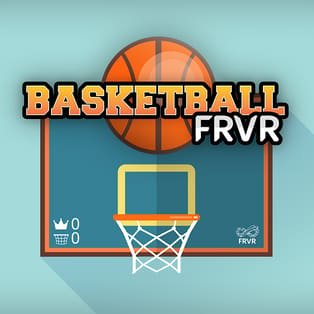Jujutsu Kaisen has taken the manga and anime world by storm with its gripping story, dynamic characters, and intense action sequences. But beyond the surface-level excitement, this series explores some profoundly dark themes that give it depth and resonance. Let’s dive into the shadowy undercurrents that define Jujutsu Kaisen’s narrative and make it such a compelling read for manga fans.
The Curse of Power and Its Corrupting Influence
At its core, Jujutsu Kaisen Manga is a story about power – who has it, who wants it, and the terrible price it exacts. The jujutsu sorcerers wield incredible cursed techniques, but this power comes at a great cost. We see how the pursuit and possession of power warps characters like Geto, driving them to extremism and cruelty. Even noble characters like Gojo struggle with the isolating effects of their abilities.
The series poses difficult questions about the nature of power itself. Is great power inherently corrupting? Can anyone truly handle it responsibly? Through characters like Yuji, who gains tremendous power but fights to retain his humanity, Jujutsu Kaisen explores these ethical dilemmas in nuanced ways.
The Omnipresence of Death and Loss
Death looms large in the world of Jujutsu Kaisen. As jujutsu sorcerers battle deadly curses, the threat of a violent end is ever-present. But beyond just action movie peril, the series delves into the lasting trauma of loss and survivor’s guilt. Characters like Megumi and Maki are shaped by family deaths. Yuji grapples with the weight of lives lost because of his choices.
This pervasive sense of mortality infuses the story with gravitas. It raises the stakes of every battle and decision. The characters’ awareness of their own fragility adds poignancy to their relationships and motivations. Death in Jujutsu Kaisen isn’t just a plot device – it’s a philosophical shadow that hangs over everything.
Survivor’s Guilt and PTSD
The series doesn’t shy away from depicting the lasting psychological toll of trauma and loss. We see characters struggling with PTSD, survivor’s guilt, and other mental health issues stemming from their violent lives. This adds a layer of realism and emotional depth to the fantastical setting.
The Blurred Lines Between Good and Evil
Jujutsu Kaisen subverts typical shonen tropes by presenting a morally complex world where good and evil aren’t always clear cut. Characters like Geto and Mahito challenge our notions of villainy by presenting understandable, if twisted, motivations. Even “heroic” characters often use ruthless methods or have questionable goals.
This moral ambiguity forces readers to grapple with difficult ethical questions. It presents a world of hard choices with no easy answers. The series asks us to consider: in a world of curses and violence, what truly separates the heroes from the villains?
The Thin Line Between Human and Curse
One of the most intriguing aspects of Jujutsu Kaisen’s worldbuilding is how it blurs the line between humans and curses. Characters like Sukuna and Mahito challenge our understanding of what it means to be human or monstrous. This theme ties into larger questions about the nature of evil and the human capacity for cruelty.
Societal Corruption and Institutional Failure
While much of Jujutsu Kaisen focuses on personal struggles, it also casts a critical eye on larger societal issues. The jujutsu world is rife with corruption, from the manipulative higher-ups to the oppressive clan systems. Institutions meant to protect people often fail or actively cause harm.
This institutional critique adds depth to the worldbuilding and provides commentary on real-world issues. It shows how systemic problems can perpetuate cycles of violence and suffering. Characters like Maki and Mai highlight the human cost of these oppressive systems.
The Weight of Legacy and Expectation
Many characters in jujutsukaisen.net struggle under the burden of family legacies and societal expectations. This pressure can be a source of motivation, but also of great pain and conflict. The series explores how these expectations can both drive characters to greatness and crush their spirits.
The Price of Power and Sacrifice
Jujutsu Kaisen doesn’t shy away from showing the steep price of power. Characters must often make terrible sacrifices to gain strength or achieve their goals. This creates a sense of weight to every power-up and victory. Nothing comes free in this world.
This theme ties into larger questions about what we’re willing to sacrifice for our ideals or for the greater good. Characters like Nanami and Yuta embody different approaches to this dilemma. The series asks us to consider: what price is too high to pay, even for a noble cause?
Conclusion: A Reflection of Our Darkest Truths
The dark themes in Jujutsu Kaisen serve to elevate it beyond a simple action series. By grappling with weighty philosophical and ethical questions, it challenges readers to think deeply about the nature of power, morality, and human nature. These themes resonate because they reflect real-world struggles and anxieties.
Ultimately, Jujutsu Kaisen’s darkness is a mirror held up to our own world. It shows us the monsters that lurk in the shadows of society and within our own hearts. But it also shows us characters striving to overcome that darkness, to find meaning and connection in a harsh world. This balance of light and shadow is what makes the series so compelling.
What dark themes in Jujutsu Kaisen resonate most with you? How do you think the series handles these heavy topics? Share your thoughts and experiences in the comments below!





























